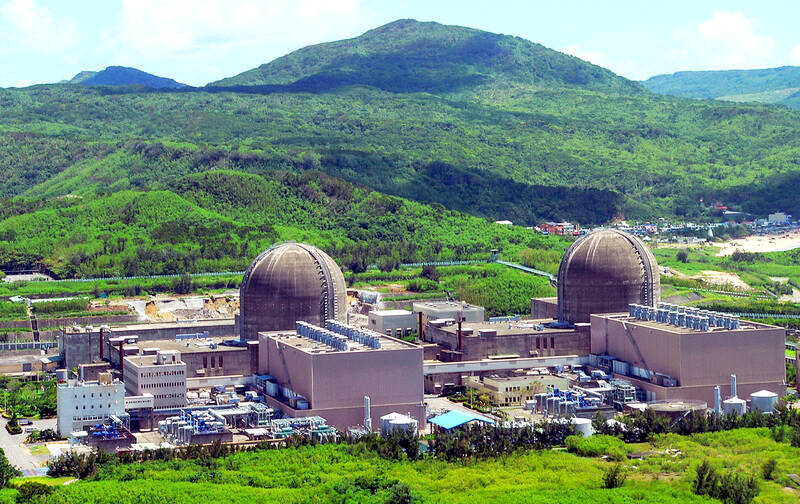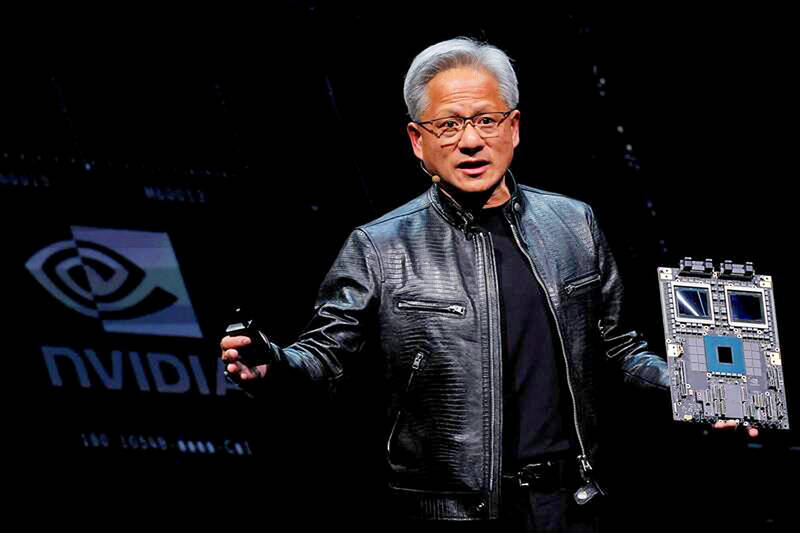Last week this paper published a translated editorial from its parent the Liberty Times calling for reconsideration of Taiwan’s nuclear-free stance (“The Liberty Times Editorial: Re-examine the nuclear-free stance”, Aug. 20, 2024). The editorial pointed out that fossil fuels still account for over 80 percent of energy production, renewables have been slow in coming and nuclear power may well be necessary.
That same week Taipower received permission to begin work on a dry storage facility in New Taipei City’s Wanli District (萬里) for the spent nuclear fuel from Guosheng Nuclear Power Plant. The spent fuel rods will be removed in 2026, and the plant’s decommissioning, a 25 year process, will begin.
No doubt this will set off another round of the nuclear “debate,” in which proponents of nuclear power will argue that Taiwan will be saved by the magic power of modular reactors, or restarting the current existing reactors, or reconstructing and then restarting the dead-on-arrival Fourth Nuclear power plant.

Photo courtesy of Taipower
POWER DEMAND
I expect there will be many surprised people when some sort of compromise on the reactors is reached, power begins to flow, and yet, the electricity supply remains tight. The reactors were never very reliable, and restarted reactors are likely to be less so. But the real issue isn’t the power supply or its (sometimes spotty) management: it’s power demand.
When new power goes in, power users will instantly expand their plans for its use, just as when new roads are built, people immediately put cars on them, replicating the traffic problem the new roads were meant to address. At present, the media is focused on the power demand for artificial intelligence, which is expected to boom starting next year as servers and data centers come online, pushing power demand up 3 percent in the next 10 years. Most of that will come in the next five years, far too soon for new nuclear plants to come online.

Photo: Reuters
In addition to AI, we can also expect an electric vehicle boom. Right now the industry is stuck in neutral as local institutions such as schools, businesses and housing communities resist infrastructure change. But over time that resistance will be overcome.
Hence, this situation in which we remain right at the power margin, the government has to constantly reassure people there’s enough power, and we have episodes of massive, costly blackouts, is likely to continue — like every other emergency — indefinitely.
A useful piece at Global Taiwan Institute last year by Jordan McGillis highlights the problems with our power system: a severe lack of resilience. As he observes, because Taiwan’s power is generated in the center and south but used in the north — symbolic of how Taipei treats the rest of Taiwan as a colony — the power system is too centralized. Hence, periodic electricity catastrophes are the inevitable result of the system’s overcentralization: “what should be isolated errors can instead become cascading island-wide cataclysms.”
The government is attempting to handle this in two ways, says McGillis. The first is a 10-year resilience implementation program. The second is isolation of the industrial parks from the supply system in the event of another (inevitable) power catastrophe.
These programs, including restarting the nuclear power plants, are stopgaps that address important issues, but they won’t solve the electricity problem. The electricity problem isn’t a lack of power, but power management: the government’s policy is to manage supply, but not demand. Instead, Taiwan suffers from wasteful, excess demand caused by Taiwan’s artificially low prices for electricity.
CHEAP ELECTRICITY
How low are they? According to Taipower’s own data, Taiwan has the third lowest prices in the industrialized world for industrial electricity, and fifth-lowest for residential electricity. Industrial electricity is cheaper in Taiwan than in China and Korea.
Low electricity prices also drive Taiwan’s high carbon emissions.
The Chinese National Federation of Industries (CFNI), a key business lobby in Taiwan, has long fought for subsidized electricity and water. The discourse on our electronics industry of hard work and human capital progress hides the extent to which these and other industries depend for their profits on subsidized electricity and water.
Agriculture as well: electricity for groundwater pumps is cheap. In the Chuoshui River alluvial fan area of Changhua and Yunlin, according to government data cited in local research, there are over 170,000 such pumps, causing severe subsidence. From the power perspective, our agricultural industry is actually a mining industry that converts cheap electricity into vegetables.
This means that for the business lobby, “adding nuclear power to the mix,” a phrase one hears often, is not about reducing carbon emissions or moving into the future. As local researchers Chou Kuei-Tien (周桂田) and Liou Hwa-Meei (劉華美) point out in a marvelous paper on carbon tax that reviews these issues, “adding nuclear power to the mix” enables local manufacturers to maintain the current economic arrangements under which gasoline, electricity, water, interest rates and wages are all kept artificially low, for the sake of the profits of a few people who are already gazillionaires.
Let me say that again: nuclear power is not about achieving a net zero carbon economy. It’s about locking in current carbon emissions levels for the sake of big business profits. If the nuclear plants are restarted, businesses buy another decade of cheap electricity, and our zombie firms another decade of shuffling, brainless life.
The CNFI has pressured the government, criticizing it for the “five lacks” of land, water, power, skilled workers and manpower. Like the discourse around nuclear power, this is cant intended to maintain the current economic arrangements, a demand for more subsidies.
If industry is truly concerned about skilled workers and manpower, nothing prevents it from starting training institutes and offering human resources policies aimed at stimulating birth rates. Nothing prevents CNFI from forming pools to purchase land at market rates and developing industrial and business districts. After all, private businesses, faced with power issues, have already taken action with the Formosa Plastics’ plant at Mailiao and Taiwan Cement’s Heping Power Plant, both coal-fired.
What restarting nuclear power plants really means is that the economy will keep churning out too much carbon, driven by low electricity prices. As many observers have noted, low power prices make Taiwan firms inefficient. Moreover, coupled with the low interest rates here that sustain an ecology of zombie firms that cannot innovate because they do not make enough money, in reality, the CNFI is not arguing for economic upgrades, but the opposite: a low-innovation, inefficient, high carbon economy that will be a catastrophe for the global environment while doing nothing for the living standards of its people.
But somewhere, someone who already has too much money will be making another huge lump. And that’s what’s important.
Notes from Central Taiwan is a column written by long-term resident Michael Turton, who provides incisive commentary informed by three decades of living in and writing about his adoptive country. The views expressed here are his own.

March 24 to March 30 When Yang Bing-yi (楊秉彝) needed a name for his new cooking oil shop in 1958, he first thought of honoring his previous employer, Heng Tai Fung (恆泰豐). The owner, Wang Yi-fu (王伊夫), had taken care of him over the previous 10 years, shortly after the native of Shanxi Province arrived in Taiwan in 1948 as a penniless 21 year old. His oil supplier was called Din Mei (鼎美), so he simply combined the names. Over the next decade, Yang and his wife Lai Pen-mei (賴盆妹) built up a booming business delivering oil to shops and

The Taipei Times last week reported that the Control Yuan said it had been “left with no choice” but to ask the Constitutional Court to rule on the constitutionality of the central government budget, which left it without a budget. Lost in the outrage over the cuts to defense and to the Constitutional Court were the cuts to the Control Yuan, whose operating budget was slashed by 96 percent. It is unable even to pay its utility bills, and in the press conference it convened on the issue, said that its department directors were paying out of pocket for gasoline

On March 13 President William Lai (賴清德) gave a national security speech noting the 20th year since the passing of China’s Anti-Secession Law (反分裂國家法) in March 2005 that laid the legal groundwork for an invasion of Taiwan. That law, and other subsequent ones, are merely political theater created by the Chinese Communist Party (CCP) to have something to point to so they can claim “we have to do it, it is the law.” The president’s speech was somber and said: “By its actions, China already satisfies the definition of a ‘foreign hostile force’ as provided in the Anti-Infiltration Act, which unlike

Mirror mirror on the wall, what’s the fairest Disney live-action remake of them all? Wait, mirror. Hold on a second. Maybe choosing from the likes of Alice in Wonderland (2010), Mulan (2020) and The Lion King (2019) isn’t such a good idea. Mirror, on second thought, what’s on Netflix? Even the most devoted fans would have to acknowledge that these have not been the most illustrious illustrations of Disney magic. At their best (Pete’s Dragon? Cinderella?) they breathe life into old classics that could use a little updating. At their worst, well, blue Will Smith. Given the rapacious rate of remakes in modern